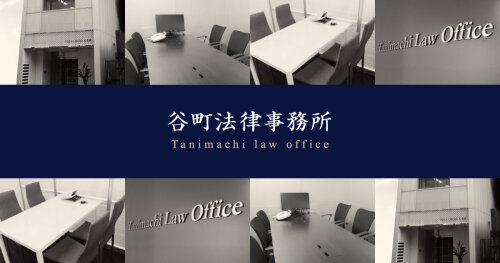Best Private Equity Lawyers in Japan
Share your needs with us, get contacted by law firms.
Free. Takes 2 min.
Or refine your search by selecting a city:
List of the best lawyers in Japan
About Private Equity Law in Japan
Private equity (PE) represents investments in privately held companies or non-public assets. In Japan, private equity plays a crucial role in financing business expansions, management buyouts, and turning around underperforming companies. The private equity landscape has grown considerably in recent years, attracting domestic and international investors who see opportunities within Japanese businesses seeking growth, restructuring, or capital solutions. Japanese private equity deals typically involve intricate legal structures, regulatory compliance, and negotiations to protect the interests of both investors and target companies.
Why You May Need a Lawyer
Engaging in private equity transactions in Japan can be complex and requires a thorough understanding of local laws and market practices. Situations where legal support is essential include:
- Negotiating and structuring investment deals, including due diligence and contract drafting
- Ensuring compliance with Japanese financial and corporate regulations
- Facilitating cross-border investments or fundraising from international sources
- Resolving disputes between investors, management, or other stakeholders
- Advising on tax optimization, regulatory filings, and reporting obligations
- Handling management buyouts, mergers, or acquisitions funded by private equity
- Assessing risks related to intellectual property, employment, or antitrust issues
A qualified legal advisor helps you navigate these challenges, ensuring your investments are protected and compliant under Japanese law.
Local Laws Overview
Private equity activities in Japan are governed by a mix of regulations and business customs. Key legal considerations include:
- Financial Instruments and Exchange Act: Sets requirements for fundraising, investment solicitation, and disclosure, especially for fund managers and institutional investors.
- Corporate Law (Companies Act): Regulates company formation, governance, shareholder rights, and requirements for executing mergers or acquiring significant stakes.
- Foreign Exchange and Foreign Trade Act: Imposes restrictions and notification requirements on foreign investors acquiring certain Japanese businesses, especially in sensitive sectors.
- Antimonopoly Act: Addresses competition concerns in mergers, acquisitions, and joint ventures involving PE funds.
- Taxation: Involves withholding taxes, capital gains treatment, and structuring vehicles (for example, partnerships or trusts) for optimal tax efficiency.
- Employment Laws: Deals with labor contracts, employee transfers, and potential redundancies in turnaround situations.
Navigating these legal frameworks requires specialized knowledge and up-to-date awareness of recent regulatory changes or enforcement trends.
Frequently Asked Questions
What is private equity, and how is it different from venture capital in Japan?
Private equity involves investing in established companies, often to improve performance, facilitate buyouts, or support expansion. Venture capital focuses on early-stage startups. In Japan, private equity deals usually involve mature businesses, while venture capital targets high-growth, innovative ventures.
Do foreign investors face restrictions when investing in Japanese companies?
Yes. Under the Foreign Exchange and Foreign Trade Act, certain industries may require prior government approval or notification before foreign investors can acquire a significant ownership stake.
Is it necessary to establish a local entity to invest in private equity funds in Japan?
Not always. However, forming a local vehicle may offer tax advantages and make regulatory compliance easier. Legal advice is recommended to select the most appropriate structure.
What types of legal documents are typically involved in a private equity transaction?
Key documents include term sheets, share purchase agreements, shareholder agreements, nondisclosure agreements, and management contracts.
How long does a typical private equity deal take to complete in Japan?
The process can range from a few months to over a year, depending on deal complexity, regulatory approvals, and due diligence findings.
Are there specific tax implications for private equity investments in Japan?
Yes. Tax treatment depends on deal structure, type of vehicle, and investor status. Proper structuring can help optimize tax outcomes, so early legal and tax advice is recommended.
What is due diligence, and why is it important?
Due diligence is the process of investigating the financial, legal, and operational status of a target company. It helps investors identify risks, liabilities, and potential deal-breakers before committing funds.
Can minority investors in private equity deals protect their rights?
Yes. Minority investor protections can be negotiated in shareholder agreements, including veto rights, access to information, and exit provisions.
What are common exit strategies for private equity investments in Japan?
Common exits include trade sales to strategic buyers, initial public offerings (IPOs), or secondary sales to other funds or investors.
Do private equity investors participate in the management of their portfolio companies?
Often, yes. PE investors may appoint board members, provide management expertise, or set performance targets. The degree of involvement varies by deal.
Additional Resources
If you are seeking further information or support regarding private equity in Japan, the following organizations may be helpful:
- Japan Private Equity Association (JPEA)
- Financial Services Agency (FSA) - supervises financial regulations and fund manager registrations
- Ministry of Economy, Trade and Industry (METI) - oversees industrial and investment policies
- Japan External Trade Organization (JETRO) - provides support for foreign investment into Japan
- Japan Fair Trade Commission - competition and antitrust matters
Professional legal and tax advisors with experience in Japanese private equity should also be consulted for tailored support.
Next Steps
If you are considering a private equity transaction or investment in Japan, take the following steps:
- Define your investment goals and consider the types of companies or sectors of interest.
- Engage a qualified Japanese legal advisor experienced in private equity transactions. Early involvement is critical for risk management and compliance.
- Work with your lawyer to conduct or oversee due diligence, structure deals, and negotiate agreements.
- Ensure compliance with all regulatory, tax, and corporate governance obligations throughout the transaction.
- If in doubt or faced with complex issues, seek second opinions or consult with specialist organizations recommended above.
Taking these steps will help safeguard your interests and improve the prospects for a successful private equity investment in Japan.
Lawzana helps you find the best lawyers and law firms in Japan through a curated and pre-screened list of qualified legal professionals. Our platform offers rankings and detailed profiles of attorneys and law firms, allowing you to compare based on practice areas, including Private Equity, experience, and client feedback.
Each profile includes a description of the firm's areas of practice, client reviews, team members and partners, year of establishment, spoken languages, office locations, contact information, social media presence, and any published articles or resources. Most firms on our platform speak English and are experienced in both local and international legal matters.
Get a quote from top-rated law firms in Japan — quickly, securely, and without unnecessary hassle.
Disclaimer:
The information provided on this page is for general informational purposes only and does not constitute legal advice. While we strive to ensure the accuracy and relevance of the content, legal information may change over time, and interpretations of the law can vary. You should always consult with a qualified legal professional for advice specific to your situation.
We disclaim all liability for actions taken or not taken based on the content of this page. If you believe any information is incorrect or outdated, please contact us, and we will review and update it where appropriate.
Browse private equity law firms by city in Japan
Refine your search by selecting a city.
















